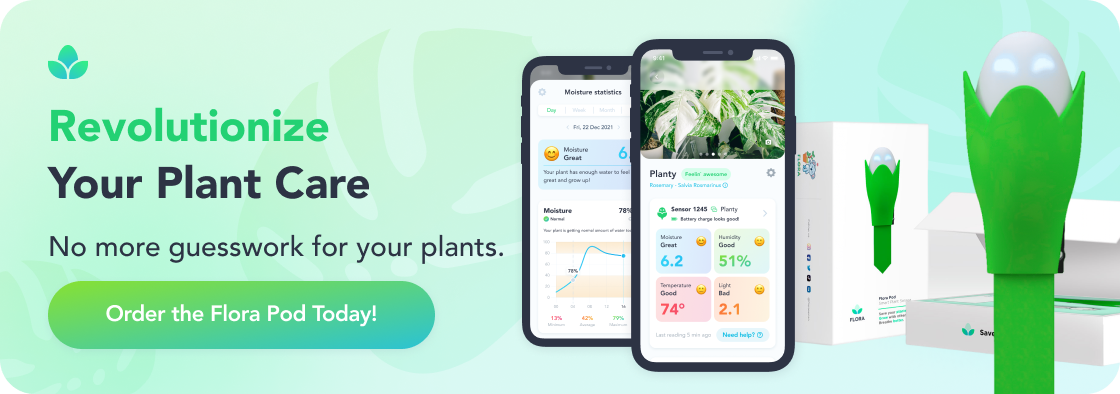Calathea Propagation Techniques: Tips for Success

Calatheas, with their stunning leaf patterns and colors, are a joy to any plant lover. But what's more exciting than enjoying these beauties? Propagating them! In this blog, we'll explore the art of how to successfully calathea propagate, ensuring that you can share and expand your collection of these tropical delights.
Understanding Calathea Propagation
Calatheas, known for their beauty and sometimes finicky nature, are most effectively propagated through division, typically done during repotting in spring. This process involves gently separating the plant at its natural root divisions. Though Calathea seeds exist, they are harder to source, making division a more accessible method.
When to Propagate Your Calathea
The timing of propagation is vital. Spring, particularly late March to early April, is ideal because this is when Calatheas exit their winter dormancy and enter a robust growth phase. The longer daylight hours and generally warmer temperatures support quicker recovery and growth in the newly propagated plants.
Step-by-Step Guide to Calathea Propagation
Step 1: Preparing for Division
Preparation is about creating a conducive environment for propagation. Moistening the soil a day in advance makes the roots more pliable and less prone to damage during division. The choice of pots and the soil mix (two-thirds peat moss and one-third perlite) is intended to mimic the Calathea’s natural, well-draining tropical soil.
Step 2: Dividing Your Calathea
Gently Remove the Plant: Carefully take your Calathea out of its pot and shake off the excess soil to reveal the root system.
Identify Division Points: Look for natural separations in the root ball where the plant can be divided into smaller sections.
Make the Cut: Using your clean, sharp tool, divide the plant at the identified points. Ensure each section has roots and leaves.
Step 3: Potting the Divisions
Place the roots in new pots, backfilling with soil up to the same level as the mother plant. You can use some soil from the mother plant to ease the stress on the offspring. After potting, water the plants and consider covering them with a clear plastic bag to create greenhouse-like conditions.
Aftercare for Propagated Calatheas
The Right Environment
After propagation, it's crucial to provide the right environment for your new Calatheas. They thrive in high humidity and warm temperatures, similar to their tropical origins.

Watering and Feeding
Keep the soil consistently moist but not waterlogged. Calatheas are sensitive to both over and under-watering. A balanced liquid fertilizer can be used monthly during the growing season to support their growth.
Monitoring Growth
Keep an eye on your new Calatheas for signs of growth or any issues. Patience is key; it might take a few weeks to see new growth.
Common Challenges in Calathea Propagation
Root Rot
Prevention is better than cure here. Understanding the right watering rhythm and ensuring good drainage are key to avoiding root rot, a common issue in many houseplants, not just Calatheas.

Pest Infestations
Vigilance in monitoring and early intervention can mitigate pest issues, with spider mites being a common foe. Regular checks and prompt, appropriate treatment can prevent infestations from becoming a significant problem.
Propagating Calatheas can be a rewarding experience. With the right technique, timing, and care, you can successfully increase your collection and share these gorgeous plants with friends and fellow enthusiasts. Remember, every plant is unique, so observe and adapt your approach for each Calathea. Happy propagating!
Fern's Leafy Learnings
Calathea propagation is most successful through division during the growing season.
Proper preparation and cleanliness are crucial for effective propagation.
Each division should have both roots and leaves for successful growth.
Aftercare involves maintaining high humidity, consistent moisture, and balanced feeding.
Watch out for common challenges like root rot and pests, and address them promptly.
Embark on a flourishing journey with plants that aren’t just decor, but companions.
At Flora, we not only bring you a vibrant selection of locally sourced, rare, and delightful plants, but we also serve as your continuous guide in your plant parenting voyage, ensuring every leaf in your sanctuary thrives. With our Flora Pod™ technology and a nurturing community of over 250,000 plant lovers, we cultivate a space where every plant parent - novice or expert - can blossom.
We propagate with a commitment to sustainability, connection, and ceaseless growth, fostering a community where each member, and their plants, are cherished and nurtured.
Crave a lush, thriving green space? Adopt a plant from Flora today!
Flora Pod™ is featured on Shark Tank!

5 Signs Your Houseplant Needs Repotting Now
Mar 02, 2026
6 Anthurium Benefits You Didn't Know About
Mar 02, 2026

How to Prune Your Houseplants Before Spring Growth Season
Mar 02, 2026

10 Best Houseplants for Spring Repotting Success
Mar 02, 2026

Can ZZ Plants Survive in Low Light Conditions?
Mar 02, 2026

5 Critical Pre-Spring Pruning Tips for Houseplants
Mar 02, 2026

Can Succulents Survive Winter Outdoors in Your Climate Zone?
Mar 02, 2026

Which Houseplants Are Toxic to Cats and Should You Avoid Them?
Mar 02, 2026





